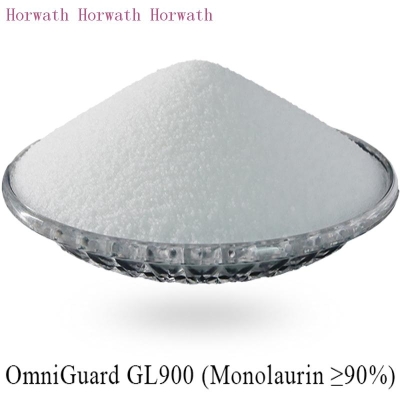Don't want to grow soybeans? Trade Wars Shake Up American Agricultural Ecology
-
Last Update: 2020-06-27
-
Source: Internet
-
Author: User
Search more information of high quality chemicals, good prices and reliable suppliers, visit
www.echemi.com
Taiwan media said that the Sino-US trade war continued to heat up, Chinese mainland July to the United States some agricultural products to impose a 25 percent tariff, mainland enterprises to other countries to import, Brazil soybeans bear the bruntRecently, it was also reported that the mainland will continue to reduce imports of U.Ssoybeans, so that the loss of U.Sfarmers will also expandSome farmers said that next year, some of the farmland will be converted to corn, no doubt to allow corn cultivation to regain the supremacyPyk
Corn has been the first choice for U.Sfarmers for nearly 30 years, but since the opening of the mainland market, the demand for soybeans has increased year by year, and the amount of soybean cultivation in U.Sfarmland has exceeded corn cultivation for the first time this year, becoming the U.Sagricultural leader, however, affected by the Sino-American trade war, the U.Sagricultural ecology has also been shaken, so changesPyk
China is the world's largest importer of soybeans, importing 95.5 million metric tons of soybeans last year, mainly used as high-protein feed for livestock such as pigs and chickens, with one-third of them coming from the United States until July, the report saidAccording to the U.SDepartment of Agriculture, the amount of soybeans exported to the mainland in the past seven weeks is far less than the one week since last fall, and soybean futures prices have fallen nearly 20 percent in the past six months Pyk
According to Taiwan's "Yu Heng.com" reported that because of low soybean prices, some farmers are considering growing corn, Minnesota farmer Joel Schreurs pointed out that if the Sino-US trade war shows no signs of easing, coupled with the federal government to stop subsidies, he will grow 30 percent of soybean-grown farmland, to corn In addition to switching to corn, some farmers also have the opportunity to switch their land to wheat Pyk Taiwan media said that the Sino-US trade war continued to heat up, Chinese mainland in July to the United States some agricultural products imposed a 25 percent tariff, mainland companies to other countries to import, Brazil soybeans bear the brunt Recently, it was also reported that the mainland will continue to reduce imports of U.S soybeans, so that the loss of U.S farmers will also expand Some farmers said that next year, some of the farmland will be converted to corn, no doubt to allow corn cultivation to regain the supremacy Pyk
Corn has been the first choice for U.S farmers for nearly 30 years, but since the opening of the mainland market, the demand for soybeans has increased year by year, and the amount of soybean cultivation in U.S farmland has exceeded corn cultivation for the first time this year, becoming the U.S agricultural leader, however, affected by the Sino-American trade war, the U.S agricultural ecology has also been shaken, so changes Pyk
China is the world's largest importer of soybeans, importing 95.5 million metric tons of soybeans last year, mainly used as high-protein feed for livestock such as pigs and chickens, with one-third of them coming from the United States until July, the report said According to the U.S Department of Agriculture, the amount of soybeans exported to the mainland in the past seven weeks is far less than the one week since last fall, and soybean futures prices have fallen nearly 20 percent in the past six months Pyk
According to Taiwan's "Yu Heng.com" reported that because of low soybean prices, some farmers are considering growing corn, Minnesota farmer Joel Schreurs pointed out that if the Sino-US trade war shows no signs of easing, coupled with the federal government to stop subsidies, he will grow 30 percent of soybean-grown farmland, to corn In addition to switching to corn, some farmers also have the opportunity to switch their land to wheat Pyk
This article is an English version of an article which is originally in the Chinese language on echemi.com and is provided for information purposes only.
This website makes no representation or warranty of any kind, either expressed or implied, as to the accuracy, completeness ownership or reliability of
the article or any translations thereof. If you have any concerns or complaints relating to the article, please send an email, providing a detailed
description of the concern or complaint, to
service@echemi.com. A staff member will contact you within 5 working days. Once verified, infringing content
will be removed immediately.







